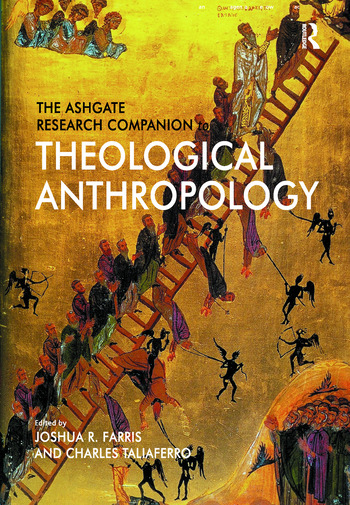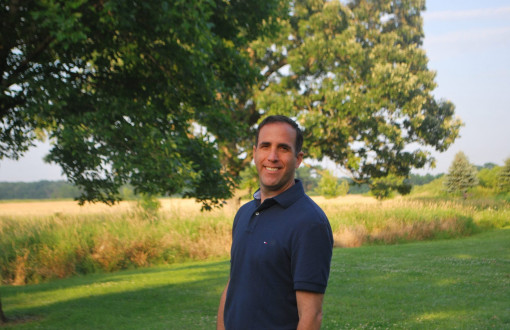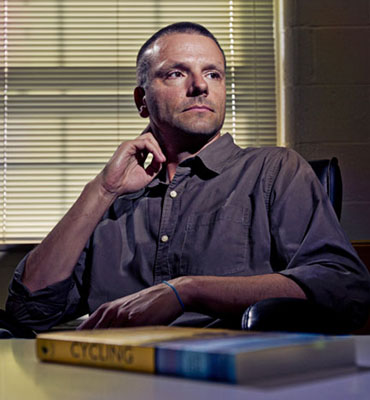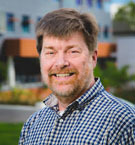In my interview with J.P. Moreland, not only does he discuss his latest book, but he also discusses trends he sees in the culture that further require a defense of a substance dualist account of the human person.
The Soul seems to function as a ‘primer’ relative to your many other books and articles on this topic. If so, it’s striking to me that such a book would emerge now in this season of your vocation vs. at the beginning of your professional life as a philosopher. What do you find yourself wanting to emphasize now that is different yet similar to what you’ve been writing about all these years regarding the existence of the soul?
I wrote The Soul at this stage of my life rather than at the beginning of my career because I have studied the issue for many years and have a lot more to say about it now. I have published a number of technical pieces on the mind/body problem and thought it was time for me to write a book that was accessible to thoughtful laypersons.
For those that have not tracked your work on the soul, what might be ‘new’ to them compared to what else they may find in the literature on this topic?
There are really two emphases in The Soul that could, in some sense, be taken as new. First, I am deeply concerned that there are such things as Christian physicalists. For the life of me, I don’t see how one can, with integrity, avoid a dualist reading of the Bible, especially if the dualism in mind is not a fairly extreme form of Platonic dualism (the soul is immortal on it’s own, the body is evil as is manual labor, the final state will be disembodied). I have read Nancey Murphy and Joel Green, and have listened to their lectures on this and had personal conversations with Green, so I know their views. And without being mean-spirited, I am convinced that Christian physicalism is eisegesis that tries to find a way to read physicalism into the Bible so Christians won’t have to be embarrassed by an outdated dualism that has been largely undermined by science. To address this concern, I devote an entire chapter of the book to a fairly careful interpretation of the key passages and show that dualism is the biblical view. Second, over the years, I have picked up some new arguments (and some new ways to put old arguments) for a substantial, immaterial self/soul, ego, I.
The book is dedicated to your friend and mentor, Dallas Willard: “a man with the largest soul I ever encountered.” Of all that Dallas taught you, what’s the most indispensable insight he taught you about the human person?
Dallas taught me many things about human persons, so it is hard to boil all that down to a single insight. But if I were forced to do so, I suppose it would be that laypeople think that science has shown we are our brains, that this is entirely false and, indeed, the view of the human person in the Bible is still the most reasonable view to hold: that the soul diffuses the body in such a way that the body really contains the soul (the body is en-souled matter), such that soulish dispositions reside in the body qua en-souled matter, and so spiritual formation includes attending to those dispositions by way of habit formation.
So, given what Dallas taught you, how have you tried to extend your own work ‘beyond’ Dallas?
A way of honoring any mentor is to attempt to extend what he taught you beyond his teaching by developing it more fully and extending it into new areas of reflection. My main work that extends Dallas’ has been (1) developing detailed critiques of the various forms of physicalism extant in the current academic culture; (2) formulating more arguments for substance dualism. These extensions are in my book. I should say that I advance my arguments and hold to my views, not primarily because they stand as extensions of Dallas’ thought, but because I think they are true and rationally defensible.
In the Introduction, you spend about two paragraphs articulating some thoughts about human embodiment, where you “take the body to be an ensouled, spatially extended, physical structure” (16). Over the years, most of your approach to explaining the existence and significance of the soul has seemed to focus on acquainting people with the irreducible nature of nonphysical (spiritual) reality (e.g., consciousness) and showing the failures of philosophical naturalism. Is there a reason why your work has not also given priority to a focus on embodiment, given your Thomistic substance dualism? Wouldn’t that Thomistic sense of embodiment have an evidential force to explaining the necessity of a soul?
You are right that the Aristotelian/Thomistic version of the soul and the way it is embodied has not been a major aspect of my writings, though I do lecture on it in my classes at Talbot. And you are also correct that, given that a body is such only if en-souled—a body without a soul is a corpse, not a body—there are many powers in the body that are not, strictly speaking, physical (e.g., the power to feel anxiety in different parts of the body). But one can only do so much, and as my career has developed, I have earnestly prayed for Jesus to guide my research and publishing, and as a result, defeating philosophical naturalism as a worldview, and showing that mind/body physicalism is at home in naturalism and not in theism, have been major preoccupations of my intellectual work.
The last chapter, “The Future of the Human Person” is not about future trajectories in anthropology but about the afterlife. You spend a considerable amount of attention on hell, which evolves into issues of soteriology. While there are echoes of your book with Gary Habermas, Beyond Death, why include a discussion about hell in a book about the soul? Or, for you, what does eschatology and soteriology have to do with philosophical anthropology?
I remain unconvinced by the various physicalist attempts to render an afterlife intelligible, given a physicalist anthropology, and I have read most of those attempts. Thus, dualism is essential for making credible the reality of the afterlife. In this regard, the literature on Near Death Experiences provides overwhelming evidence for the existence of a soul and the reality of disembodied existence near or after death. While I do not agree with the doctrinal ideas in every DNE account, there are simply too many credible accounts that have been studied carefully which lend support to dualism and a disembodied intermediate state between death and final resurrection. In my last chapter of The Soul I include two NDEs that support these claims. Besides, if one becomes convinced that the soul is real, then one should give serious attention to what happens after one dies. In order to give guidance to such attention, I include as the last chapter a treatment of the afterlife.
Anyone who has read your articles and books for any length of time will quickly discover that you are passionate about ‘deconstructing’ the hegemony of scientism in the academy and in the culture at large. Is there a correlation between your critique of that epistemic-cultural hegemony and your (not often known) critique of the hegemony and domination of political power in a society?
There is, indeed, such a connection. It is on the basis of the possession (or the perceived possession) of knowledge that people have the authority to act in public and shape the common good. Unfortunately, scientism has led a number of cultural elites to reject traditional Christianity as outmoded and falsified, and to seek to replace it with progressive forms of secularism. This movement is gaining ascendency in the centers of power in our culture—the schools, universities, media, entertainment, and politics. This is why we must undermine scientism and contend for Christianity in the public square. Journalist and regular contributor to Fox News on television—Kirsten Powers—recently converted to Christianity from a secular worldview precisely because she heard a rational defense of the faith and came to realize that the good evidence was on the side of the Christian religion.
We seem to live in a cultural milieu where there is widespread pluralism regarding ‘human identity.’ For example, it is not uncommon for the patterns of our public discourse to run wild with ‘identity talk,’ whether referring to ‘identity politics,’ ‘gay identity,’ or ‘national identity,’ and still more, our ‘Christian identity’ and ‘ethnic identity.’ Granted, these are probably not univocal meanings of ‘identity.’ But what do you make of the proliferation this ‘identity’ fixation?
The proliferation of ‘identity’ talk represents the rejection of essentialism with its replacement on a form of postmodern constructivism according to which I can construct any identity for myself I want and form groups of others with the same constructed identity. This group hegemony keeps one from facing who they really are, essentially (image bearers of the biblical God who gave them a nature), and, instead, hiding from reality by the soothing comfort that comes from group reinforcement of their constructed world.
For many philosophers and theologians, your work has helped to shape plausibility conditions and pathways for others to traverse in ‘thinking Christianly’ about metaphysics, philosophy of mind and theological anthropology. What do you hope a next generation of scholars will be enabled to do with and ‘beyond’ the areas that you have cared so deeply about?
I hope that laypersons, especially young Christians who getting ready to go to college or are already there (or who have just graduated) will read The Soul as a way of resisting cultural incorporation into views antithetical to Christianity and common sense. If we can establish dualism as the biblical and most defensible view throughout the Christian community, then the cream will rise to the top: some Christians who go into various fields will use the notion of the soul to integrate what they do with the Christian faith. Such integration keeps Christianity from being marginalized and it shows the important intellectual work the central concepts in Christianity do when employed in the right way. And the notion of the soul is one of the most important concept for that work.
More about J.P. Moreland can be found at his website. Readers might also be interested in the recent collection of essays by some of J.P.’s friends, which reflect upon and advance some major themes in his writings, entitled, Loving God with Your Mind: Essays in Honor of J.P. Moreland, edited by Paul Gould and Richard Davis (Moody Publishers, 2013).



 Scholarship and Character as a Christian Academic
Scholarship and Character as a Christian Academic
 A Perspective on Perspectival Factualism: Response to Paul Gould
A Perspective on Perspectival Factualism: Response to Paul Gould
 Further Reflections on Academic Faithfulness: A Reply to Friendly Critics
Further Reflections on Academic Faithfulness: A Reply to Friendly Critics/S-cover/without%20spine/9780802411006.jpg)

